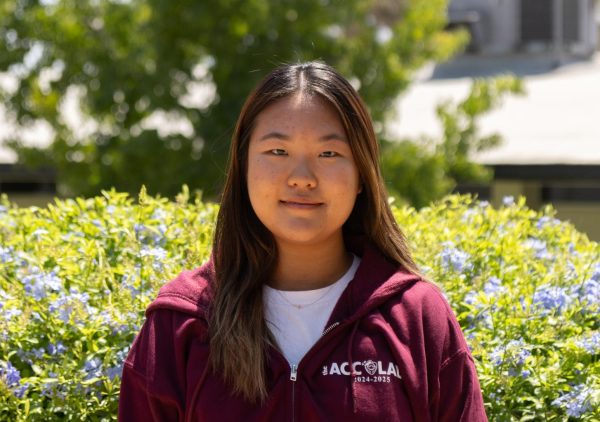PRO: Later start time says goodnight to groggy students
Listening to a Biology Honors lecture detailing the structure of nucleotides proves impracticable for zero period students at 7:27 a.m., especially after just a few hours of sleep.
Yet, picturing the exact routine half an hour earlier at 6:57 a.m., like the zero period students once did before the Senate Bill 328, automatically induces a dizzying headache.
According to a September 2020 article by the American Academy of Sleep Medicine, students should receive 8-10 hours of sleep every day. However, club volleyball has delayed the time I complete my homework, forcing me to go to bed at 10 p.m. and often later — one hour less than the recommended window.
With zero period beginning at 7:27 a.m. and first period beginning at 8:30 a.m., I can’t imagine waking up earlier to go to school because I know I wouldn’t be as alert or receptive to new information throughout the first few classes of the day.
After a year of later school start times, the mandate proves that it has done exactly what it promised — allow students to start their days more productively.
Studying later in the morning boosts my concentration as our body clocks run 2-4 hours behind those of adults, according to an April 2021 Ra Optics article. To illustrate, if adults are hypothetically attentive for zero period at 7:27 a.m., then students will be at peak levels of productivity at 9:27 a.m.
Being productive means the ability to absorb information.
I’ve found that the earlier it is in the morning, the harder it is for me to retain information. All of it would just settle in my brain as a jumbled mess, and my grades and ability to preserve information would also be just that.
Critics of the 2022-2023 bell schedule may argue that the 8:30 a.m. start time does not promote academic efficiency. They might believe that teens get more time in the afternoon to study if school begins at 8 a.m. and don’t see how the new start time will increase students’ sleep time.
Instead, they criticize the late start saying that it affects all after-school activities, specifically sports, because it gets too dark as times move later.
However, a 30-minute difference in start times doesn’t affect student-athletes’ practices much, mainly because students often play outdoor sports with access to street lamps and other light sources. Furthermore, when daylight saving time comes around, the late start does not effect students who practice until 8 p.m.
Thinking about the benefits to teens, a little darkness while playing sports seems like a minute issue.
In addition, I found it difficult for me to sleep at an earlier time even with the absence of homework.
With distractions such as the internet, I’ve found it difficult to go to bed early and control my time on devices, especially when I finish homework early. Thus, even if school ended 30 minutes earlier during the 2021-2022 school year, I predict I would still go to bed at similar times and get less sleep.
Studies have shown that it isn’t just me who can’t go to bed early.
Biological shifts in the production of melatonin, a sleep hormone, scientifically make teens inclined to stay up later, according to a Feb. 23 Child Mind Institute article. These uneven developmental changes in our bodies along with the temptations of social media and entertainment apps on my phone create a recipe for disaster.
These obstacles result in a failure to sleep eight hours every night.
The 8:30 a.m. start time ensures at least a little extra sleep for me and other teens in California, which can lessen our chances of sleep deficiency that result in chronic health problems, including heart disease, kidney disease and high blood pressure.
Thanks to the new start time, I can say goodbye to sleepless nights and say good morning to focused learning sessions.

Outside of the newsroom, Park is involved in clubs and organizations including Bio Club and Literacy for Youth. She also loves collecting stationery items, going out for food with her friends and watching Korean dramas.
CON: New bell schedule does not help student sleeping habits
Last year, I woke up every morning to the sound of my alarm at 6 a.m., jumped out of bed, showered and rushed to school before the first bell sounded at 6:55 a.m.
At home, I would try to study and give up because I was too tired. I would put my dog by my side, finally sliding into bed by 11 p.m. or midnight.
So hearing that the 2022-2023 school year zero period would start at 7:27 a.m. was a relief. I brushed off my fatigue from last year and looked forward to enjoying 30 more minutes of sleep.
Despite my optimistic expectations, this year disappoints me as I find my eyelids drooping in second period and the dark circles under my eyes being the most prominent they’ve ever been.
I return from school at 3:40 p.m., collapse on the couch for an hour and finish homework. Nothing else changed except for the nap and my later sleep time because of my advancement into sophomore year.
I’m fine with the 8:30 a.m. start time, but what bothers me is how the bell schedule change doesn’t help me.
I can’t be the only one who feels like this, right?
Actually, I know I’m not the only one.
My friend, who had the same zero period as me last year, came into the class just as the tardy bell rang every day.
This year, he’s not taking a zero period.
And he’s late every single day.
Most people I know get the same amount of sleep they did last year. A lot of them say their sleep schedule just got pushed 30 minutes back along with the bell: waking up and going to sleep 30 minutes later.
Someone told me that, like me, he started sleeping later because of the assurance that he would wake up later, too, only for the amount of sleep to decrease more and more as time passed and homework increased.
It’s only natural that daily workloads increase and sleep times move later as the school year goes by. But if the bell schedule does nothing to change sleep to begin with, I see no point in changing it.
Whether people get more sleep or not, I don’t think students are more awake during school, either. I see classmates zoning out and bobbing their heads as they fight sleep in first and second periods.
They almost always lose the battle to the allure of short but sweet slumber.
Even later in the day, during sixth period, kids softly snore with their heads on their palms as their teacher prepares his or her method of waking them up.
In a high school with a consistent daily bell schedule, advancing to the next grade would give you more work and, therefore, less sleep. Our amount of sleep would decrease every year, so even if we move the schedule itself back, we’ll still end up sleeping less and less.
If the bell schedule itself won’t help us feel more awake or get more sleep, changing it won’t affect anything.
So let’s accept that new bell schedules don’t actually help us and just commit to one schedule.

Outside of The Accolade, Kim enjoys tutoring at the Algebra Center and competing with friends at Science Olympiad events. The senior hopes to make his final year as a Lancer into a year full of great memories.

